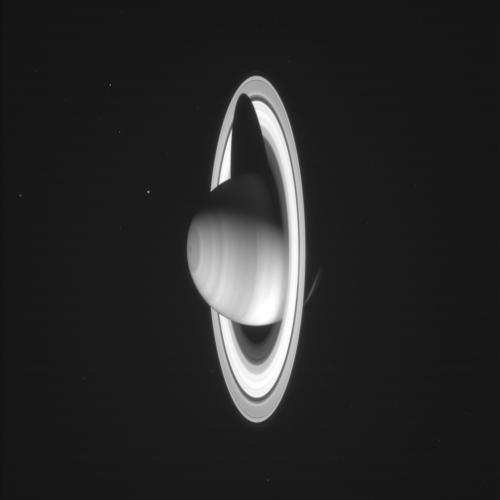Winners
Ramesh Pattar
Grade 5-6

Contest:
2018-2019
Topic:
Titan
School:
Steeple Run Elementary School, Naperville, IL
Teacher:
Margo Winder
I was four years old when my mom first took me to the library. My first book was “TRUE: Saturn” and astonishingly Titan was on the first page! From then on I was completely intrigued by Titan. There were many facts about Titan but the most fascinating fact I found was Titan had it’s own atmosphere even though it was only a natural satellite. But as I grew, my passion to seek knowledge also grew. I learnt many features about Titan such as, it had land forms like mountains, valleys and rivers made of liquid methane or ethane. Also Titan’s atmosphere is mainly composed of nitrogen and the clouds are made of hydrocarbons.
Titan is a really inspiring world because, it is the sole purpose of the most captivating mission in the whole history of Solar System Exploration: The Cassini-Huygens mission. This mission consisted of two parts: one, the Huygens landing probe and two, the Cassini launching probe. On 14 January,2005 the Huygens probe was launched into the dense atmosphere of Titan to uncover the secrets of the mysterious world. When the probe first landed on Titan it hit something hard and then penetrated deeper. The probe gave of information for one hour before it’s battery drained out. This inspired me a lot because, we have never been so involved in one particular world before.
I am excited about recent discoveries of Titan by the Cassini space probe. Many include evidence of a subsurface ocean of water and ammonia and also the rivers of methane are filled regularly by rain from hydrocarbon clouds. If we compare all of this to Enceladus's plumes, then many people think that Enceladus is more fascinating, but I think Titan is more astonishing because, imagine that you’re lost in outer space, land on an unknown moon & see landforms that reminds you of Earth. Enceladus’s plumes are totally not analogous to the “unknown moon” or Titan. If we return to Titan, which I hope we do, then I think we will find more signs of the subsurface ocean, more signs of life and learning more about this mysterious world. Recently scientists of Cornell University have made a hypothetical cell membrane completely based on methane to show how life could be on Titan. If I get a chance to explore Titan with another probe I would be awe-struck. I would install many instruments such as those on the Huygens probe only much more advanced. I would also improve the battery power to get more data. I chose Titan for a lot of reasons but the most important one is that Titan is more of an unexplained world, because before the Cassini-Huygens mission we knew nothing about Titan because of the orange haze surrounding it. Even after the Cassini-Huygens mission, we know so little about Titan that you could compare that to a fraction of a micro second. Since we know so little about Titan, I think it would be utterly fascinating to explore it even more.
